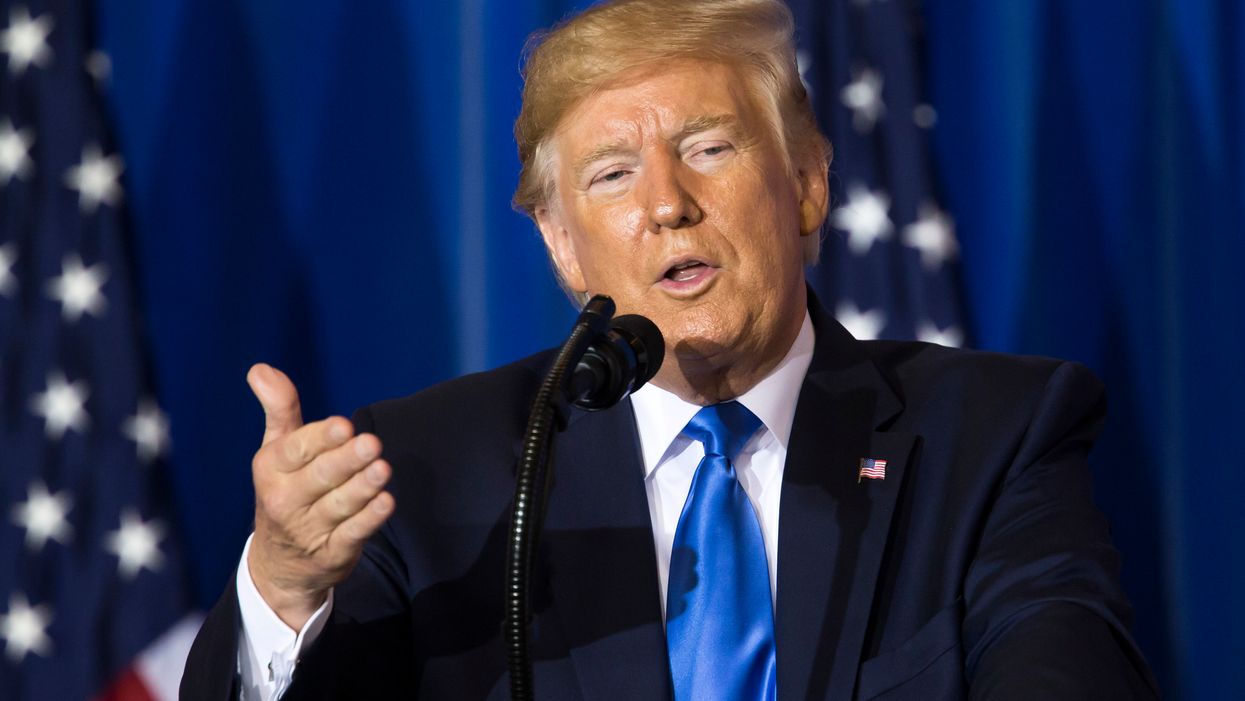The California Supreme Court is fast-tracking its review of a challenge to a new law that would require President Trump to make public his tax returns in order to get on the state's ballot for the 2020 election.
A lawsuit seeking to block implementation of the law was filed August 6 by the California Republican Party against Secretary of State Alex Padilla. It claims the law violates California's constitution.
Two other challenges, one filed by Trump's personal lawyers, are pending in federal court.
Trump refused to release his tax returns during the 2016 election campaign, bucking a practice followed by every presidential candidate for decades.
The court issued an expedited schedule on Wednesday requiring attorneys on both sides to file legal papers by mid-September, including anyone who wants to file briefs supporting either side.
The California law requires presidential candidates to release five years of tax returns in order to appear on the ballot. Democrats control both houses of the California Legislature and Democratic Gov. Gavin Newsom signed the bill in late July.




















Trump & Hegseth gave Mark Kelly a huge 2028 gift